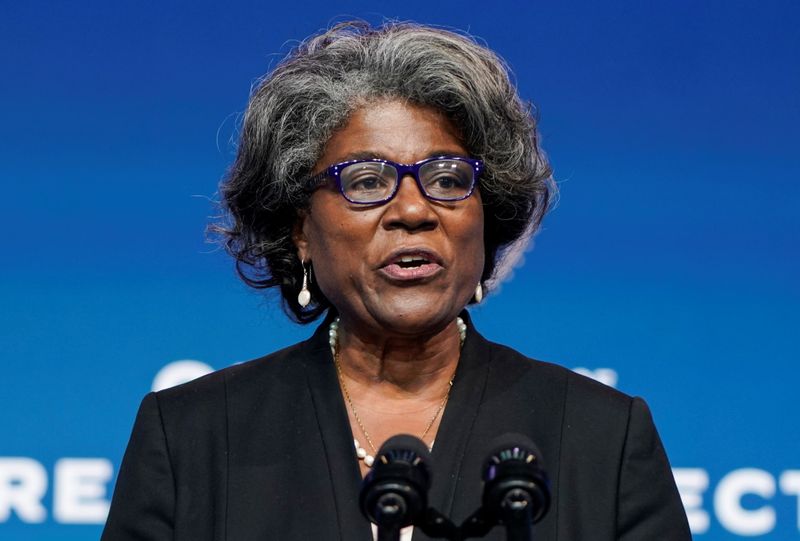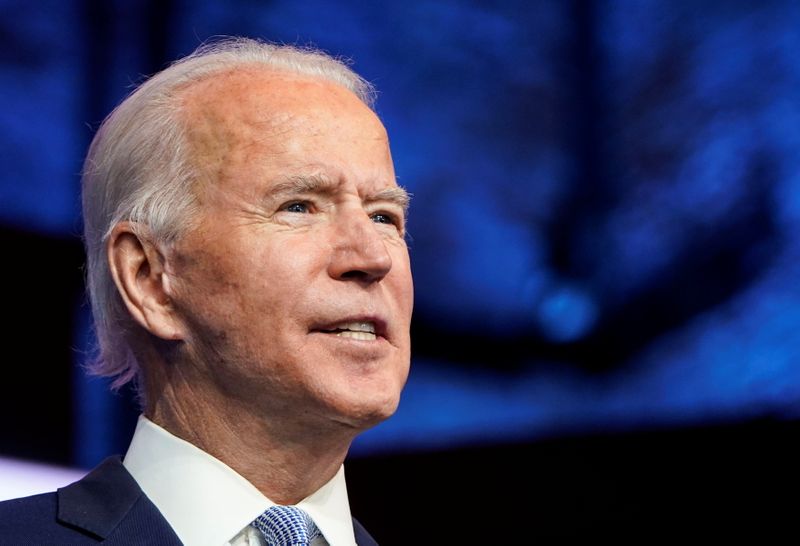By Trevor Hunnicutt and Humeyra Pamuk
WILMINGTON, Del. (Reuters) - President-Elect Joe Biden faces a challenging task fulfilling his foreign policy vision of the United States reclaiming its global leadership role after years in which the country stepped back and rival powers like China stepped in.
Introducing his national security team that includes veteran diplomats, Biden and his nominees on Tuesday emphasized working to strengthen alliances and multilateralism, ideas that fell out of favor during the "America First" approach of Republican President Donald Trump.
"It's a team that reflects the fact that America is back, ready to lead the world, not retreat from it," he told a news briefing in Wilmington, Delaware.
But analysts said that while the incoming Democratic administration could secure quick reversals in areas such as rejoining the Paris climate agreement that Trump abandoned, it would be more difficult reclaiming the global power relinquished by Washington, a trend that started before Trump.
"Biden, to the extent he reinforces those norms and institutions, will help shore up America's position," St. Lawrence University history professor Howard Eissenstat said.
"What he cannot do is change the hard reality that the U.S. is no longer that exceptional: Other countries and regions can and will effectively compete in every sphere."
DIFFERENT WORLD
Biden, who takes office on Jan. 20, will be taking on a much different world from the one he left four years ago as Barack Obama's vice president. China has assumed a larger global role, ranging from multilateral institutions to assisting development in Africa and Latin America.
"It might start to look an awful lot like Obama 2.0 rather than Biden if it's talking a big game about returning to Asia but resources are declining," said Randall Schriver, who worked as assistant secretary of defense under Trump.
Over the past four years, the United States has taken steps to withdraw from the World Health Organization and pulled out of a 2015 nuclear deal between Iran and world powers. Trump questioned NATO's relevance and resisted taking a tough approach against foreign policy rivals such as Russian President Vladimir Putin, moves that raised eyebrows among allies.
The United States and China have been increasingly at odds during the Trump presidency, as the world's two biggest economies clashed over trade, Beijing's handling of the coronavirus, and Hong Kong and the South China Sea.
During the election campaign, Biden vowed to take a tough line on China's expanding influence worldwide, reverse Trump's decision to pull the United States out of the Paris climate accord and rejoin the Iran nuclear accord if Tehran resumes strict compliance.
"We can't solve all the world's problems alone" he said on Tuesday. "We need to be working with other countries, we need their cooperation, we need their partnership."
But current Secretary of State Mike Pompeo said on Tuesday that "multilateralism for the sake of hanging out with your buddies at a cool cocktail party - that's not in the best interest of the United States of America."

Citing the defeat of Islamic State militants in Syria and actions to contain China and Iran, Pompeo told Fox News: "We work with nations when we have common interests and we develop coalitions that actually deliver real results and reflect the reality on the ground. That wasn't what was happening when we came in here to the State Department."
